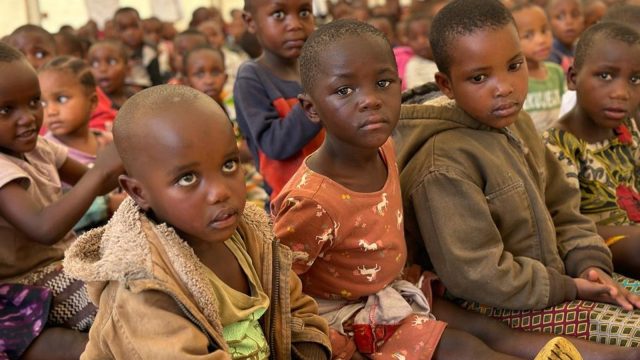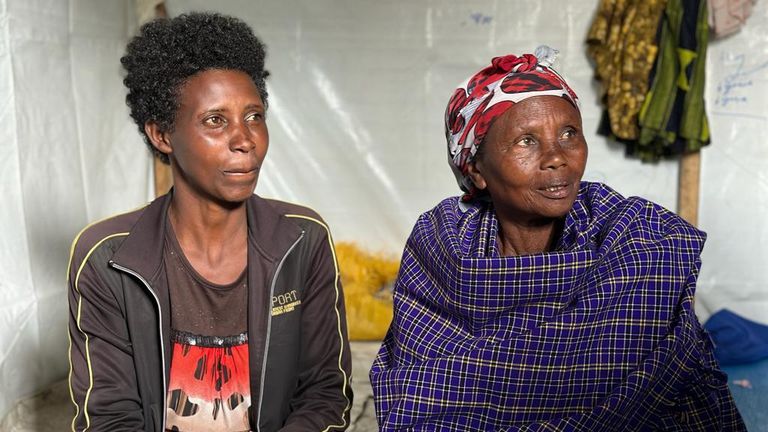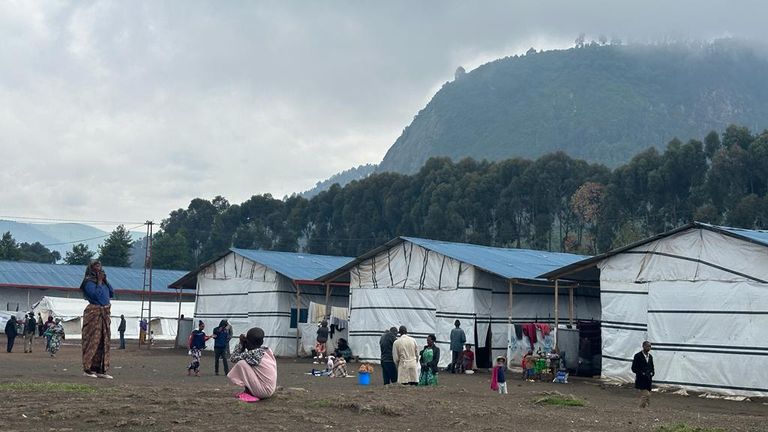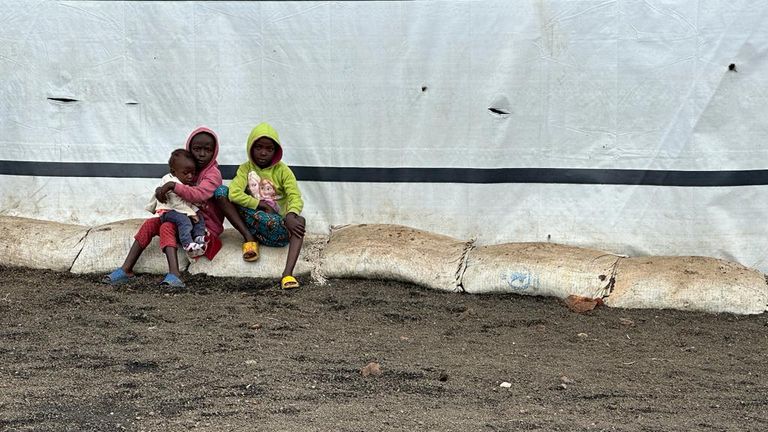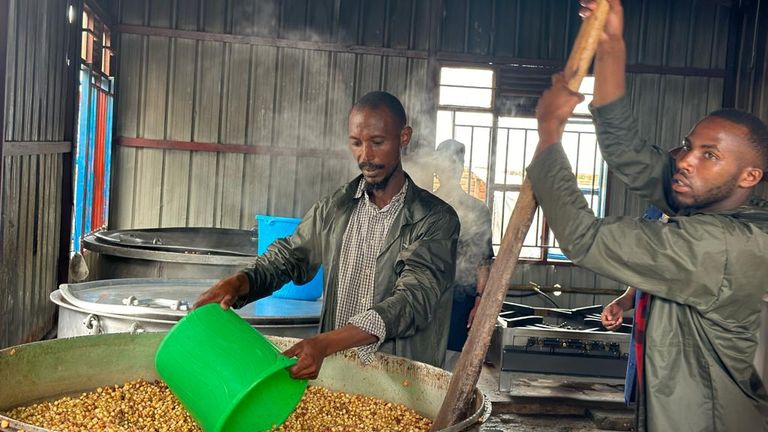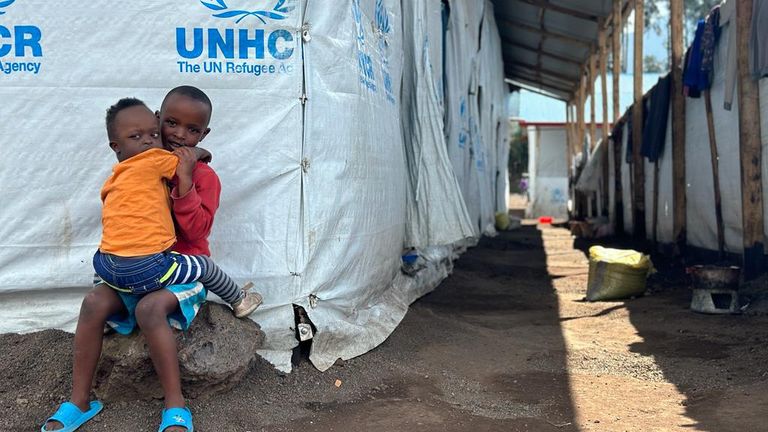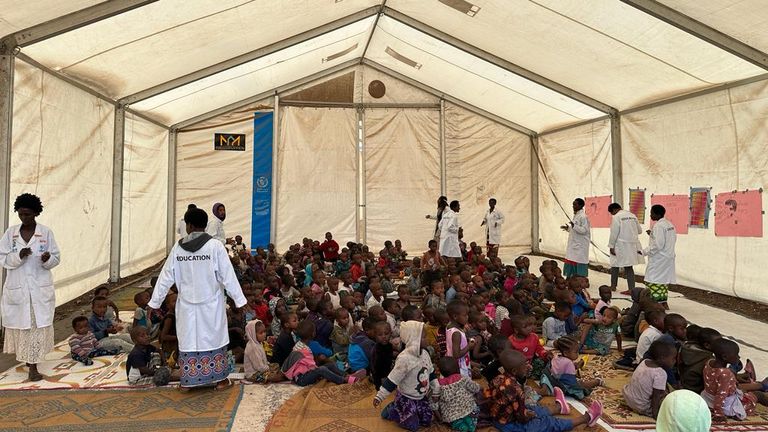Congolese men, women, and children are fleeing ethnic violence in eastern Democratic Republic of Congo (DRC) as tensions soar between two neighbouring governments.
Rwanda stands accused of supporting the M23 rebels fighting against the forces of DRC President Felix Tshisekedi, who recently likened Rwandan president Paul Kagame to Adolf Hitler at a campaign rally preceding his 20 December presidential election run.
A historic transit camp for Congolese refugees was forced to reopen earlier this year to accommodate the influx of civilians fleeing heightened violence in eastern DRC.
The Nkamira Transit Camp is currently brimming with Tutsi men, women, and children who escaped targeted ethnic assaults by militants belonging to the dozens of different rebel groups ravaging their homeland.
Sixty-year-old Mutwarutwa arrived here at the end of November. She fled her home with nothing but the clothes on her back as Mayi Mayi rebels attacked her village.
“One day I was at home and we were told that there was going to be an attack. We decided to run and then suddenly bombs were falling and guns attacking us. We had to leave with absolutely nothing,” she says.
“We did not have money to get on a motorbike so we decided to run and hide in the forest. Eventually we made our way here.”
Mutwarutwa is not alone. 450,000 people were displaced by violence in eastern DRC’s North Kivu province in just the six weeks of October to late November.
Only 20km from the Goma-Gisenyi crossing straddling North Kivu, Nkamira is the first stop for many of them fleeing to Rwanda. In November, the camp was receiving around 200 new arrivals a day.
Angelique is sat next to Mutwarutwa on a blue mat covering the hard ground. This tented allotment has been her home since she fled North Kivu with her children and husband in February.
Read more: What is the new Rwanda plan and why is it controversial?
Labour furious as govt reveals cost of Rwanda asylum policy
Angelique’s husband was killed as they made their way out of danger and she says her father, who stayed behind, is currently in hiding from the rebels.
“We look different so we are hated and just killed. We were told that, as Tutsis, we would be targeted again and again until we leave,” Angelique tells us with a painfully resigned look in her eye.
She describes her body aches from months of sleeping on the hard floor.
“Back home, we had beds and mattresses and everything,” says Angelique.
“But at least here we can sleep,” quips Mutwarutwa. The terror kept them awake long before the attack finally came.
They both say they want to return home to DRC once there is peace. In Rwanda, they have safety but little else.
Money for mattresses, soap and sanitary pads dried up in July.
The UN Refugee (UNHCR) Appeal for Rwanda was only 38% funded this year – the worst deficit in recent times.
In Nkamira’s kitchen, pots that once made carrots, cabbage, spinach, and rice are now only serving a meal of corn and beans.
At the medical clinic, sick toddlers with chest infections are given paracetamol.
In Kigali, UNHCR Rwanda spokesperson Lilly Carlisle tells us the cuts have been expansive.
“We have had to limit access to health care. We have had to cut our cash assistance programmes for non-food items, which are things like soap, household goods and sanitary pads for women,” she says.
We speak to her as the UK-Rwanda treaty is being finalised. A £240 million deal to bring in deported asylum-seekers from the UK that the UNHCR has taken a firm stand against.
I ask Lilly what it is like to witness so much money paid for people who are yet to arrive and do not want to be here.
“It is on us as the international community to continue to support the existing refugee population here in Rwanda.
“They’ve been here for many years but that doesn’t mean that their needs are any less valid,” she responds.

